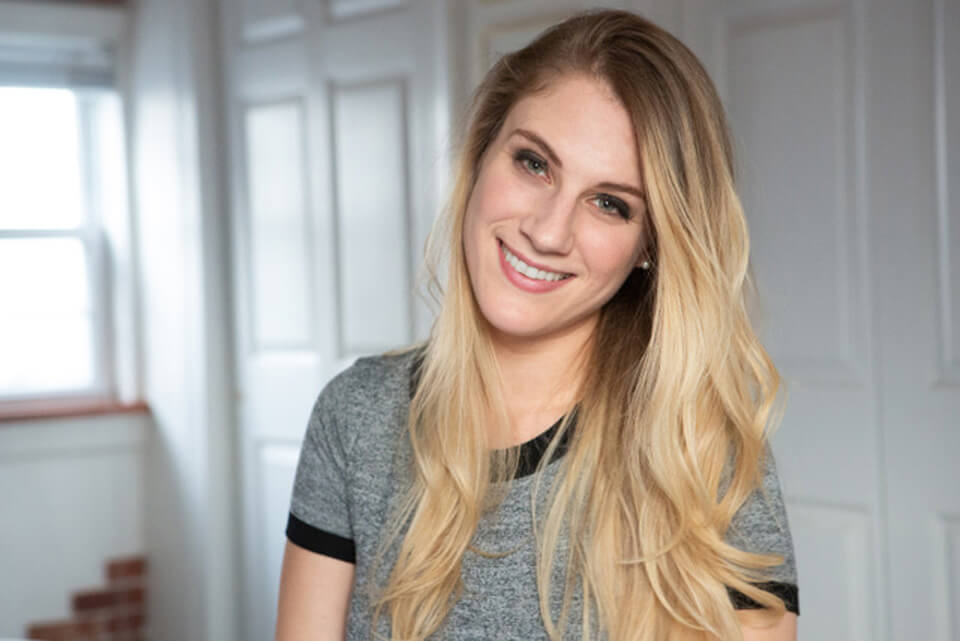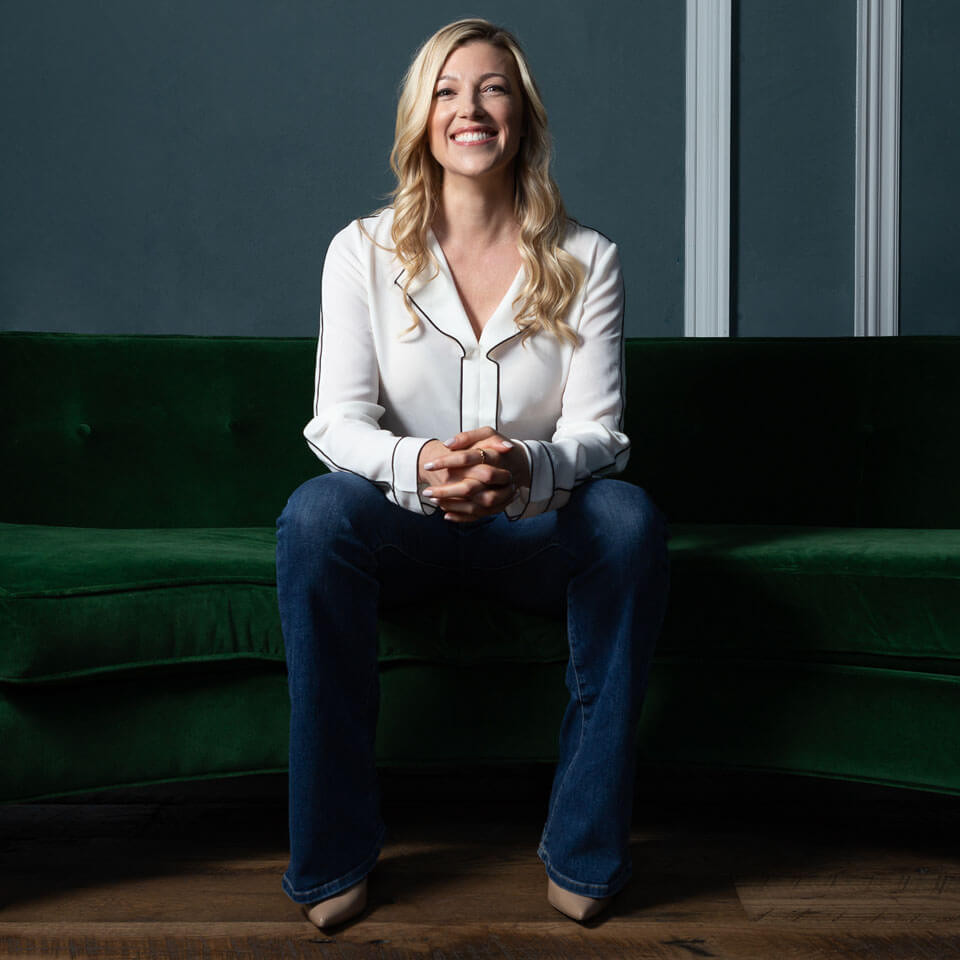Today’s generation of sex toy lovers has been lucky enough to have more access to pleasure products and sex education than ever before. Innovative toy designs and tech — along with the millennial-driven, business-savvy entrepreneurs behind them — have been featured in highbrow publications like The New York Times, Forbes and Bloomberg, seemingly normalizing the use of sex toys and legitimizing the business of marketing them. It’s sparked hope and the refreshing feeling of validation for a lot of us in the industry. However it seems that as soon as we start to feel confident in our rise to acceptance, it isn’t long until we’re back to where we started — battling against unjust discrimination and censorship.
What started with the shady burying of several sex-positive Instagram posts and profiles — widely known as shadow-banning — became official last month when Instagram introduced more policy designed to ensure that the content they recommend to people “is both safe and appropriate for the community.”
Instagram announced that it would no longer recommend “borderline” material to its community at large. “For example,” the company said, “a sexually suggestive post will still appear in Feed if you follow the account that posts it, but this type of content may not appear for the broader community in Explore or hashtag pages.”
According to TechCrunch, the new policy means is that “if a post is sexually suggestive, but doesn’t depict a sex act or nudity, it could still get demoted. Similarly, if a meme doesn’t constitute hate speech or harassment, but is considered in bad taste, lewd, violent or hurtful, it could get fewer views.”
Jessica Drake, an adult star, sexpert, and spokesperson for Wicked Sensual Care, suspects that Instagram algorithms are responsible for the irrational enforcement of its guidelines.
“I think these algorithms don’t differentiate between explicit and educational or informative, and as a result, broad censorship is removing valuable resources from the platform,” she said. “There seems to also be a double-standard against our industry. Many mainstream celebrities have posted nudity or sexual images and still have their accounts.”
Sex-positive podcast Shameless Sex operates a popular Instagram account, where one day they noticed their posts started mysteriously disappearing within seconds of being posted.
“There was no notification,” Shameless Sex co-host Amy Baldwin said. “At first we thought it was a glitch, but then we discovered this was happening to many other sex educators. We all still had an account, but we were unable to post.”
Coincidentally, the “glitch” began occurring a week after Shameless Sex ran a provocative campaign where they shared photos of women holding up written messages outing their sexual shame, as well as sharing the diversity of their sexual experiences. These suggested disclosures such as “I cheated,” “Sometimes I record myself orgasming and then masturbate to it later,” and “I sleep in a king-sized bed with my husband and girlfriend every night and it's the best.”
“Our guess was that our campaign triggered something at IG — either by getting reported or perhaps an algorithm that picked up on one of the hashtags we used,” Baldwin said. “We knew nothing, only that we were being silenced.”
According to Baldwin, Shameless Sex tried contacting Instagram, and found other helpful tricks like logging out and being inactive for a few days.

“Currently, we are using caution when choosing our hashtags and captions when we post,” Baldwin said. “We have 13.9K-plus followers to date and are getting close to 100 more a day and we don't want to risk losing account access again as IG is such an important platform to get the message of sex-positivity/sex-ed out there.”
As one of the first accounts to call out Instagram for unfair censorship after suddenly being removed from the social media platform, Slutty Girl Problems’ founder Lorrae Bradbury has been very vocal about advocating for the right to post sex-positive content, sharing her experience in Instagram Stories, as well as in YouTube videos and blog posts. She has made it her mission to drive attention towards the unjust censorship of sex-positive content.
“While I was surprised and disheartened, I wasn’t completely shocked,” Bradbury said. “In the wake of the SESTA/FOSTA legislation, Tumblr and Craigslist have completely removed adult content from their platforms, Skype and Google are disabling accounts with sexual content, and Facebook and Instagram have censored speech around sexuality, including non-graphic educational language around sex. I had known there was potential for SGP to be shut down, simply because we are now facing a sex-negative backlash on major social platforms.
“However, we have never posted anything that breaks Instagram’s community standards or rules, including nudity or pornographic content,” Bradbury continued. “We comply with FTC guidelines, have never engaged in spam or unethical uses, and our community of followers has been built completely organically.”
After SGP mobilized its community to put pressure on Instagram, they were issued an apology and had their profile reinstated, albeit without the ability to update it with new posts.
“[We] continued to publicly advocate to fight Instagram, as well as support dozens of other accounts that had been deactivated,” Bradbury said. “Nine days later, on International Women’s Day, they deactivated the account again with no information, only to reactivate it a day later, again after fighting, with no information and still no ability to post. It wasn’t until March 19 — a full 20 days after the initial deactivation — that we were restored our posting capabilities, still with no reliable explanation other than ‘technical issues’ beyond their control. To say this experience has been a rollercoaster is an understatement.”
On a platform where twerking videos and other overtly sexualized imagery of women are inescapable, to many it’s baffling that sex-positive educational content is deemed inappropriate.
“The guidelines are confusing, ambiguous and it seems like IG does not equally enforce them,” Baldwin said. “There are plenty of male-owned accounts that are openly objectifying women's bodies by regularly posting photos of women's body parts (twerk shots, etc.), while many female-identified sex educators are silenced or even deleted for talking about masturbation and educational tips for sexual pleasure. We are here to help people not to hurt, belittle or objectify them. There is nothing about our message that should ever be censored.”
Similarly, Bradbury feels Instagram allows sexist, racist, homophobic, ableist and other derogatory, offensive content to proliferate on its platform while sex education-focused content that’s intended to help is stifled.
“This selective censorship is blatant sexism that perpetuates shame and stigma around women’s sexuality,” Bradbury said. “It is also a sad double standard that allows misogynistic content and ‘humor’ to be featured in public feeds, while feminist content that calls out toxic masculinity is banned as ‘hate speech.’ There is still so much adult content that exists on the platform — yet the accounts that I see being deactivated en masse are sex-positive educators, activists, podcasts and artists.

“I can’t even begin to count the amount of inappropriate, sexually graphic, and non-consensual pictures and messages I’ve received in my DMs, all of which I’ve reported,” Bradbury continued. “Yet those accounts still continue to exist, and Instagram either does not respond to the report or says it does not violate their terms. It’s unacceptable and, quite frankly, dangerous to allow misogyny and harassment to proliferate while empowering voices are silenced.”
With the internet serving as the go-to for all sorts of information, the absence of inclusive, sex-positive resources on Instagram’s popular platform is particularly harmful for young people and marginalized communities.
“While the ‘standard narrative’ of heteronormative, puritanical sexuality continues to persist online, it becomes harder to find content about LGBTQ resources, alternative sexual preferences, kink safety and awareness, sex industry safety and community, and all forms of sex education and empowerment,” Bradbury said.
While it’s easy to blame Instagram for its unbalanced method of enforcing its guidelines, industry experts say it’s sadly a reflection of how the general public feels about sex.
“Because the vast majority of post removals and account bans are based on user reports, I don't think that Instagram is targeting anyone, rather it's the users on Instagram that are trying to get posts and accounts taken down,” said Zoë Ligon, the CEO and founder of Spectrum Boutique. “While there are definitely some instances of automated flagging of posts, there is definitely an awareness within communities who are against sex self-expression that if you report someone enough, they'll get taken down.”
Ligon points out that when a post or account gets reported, a moderator — in a split-second decision perhaps — reviews the content in question along with the number of reports a person has. Enough reports, and it could amount to an automatic ban.
“I think that social media platforms need to do more protect activists — specifically accounts featuring non-white bodies, fat bodies, and trans and gender nonconforming bodies, which are taken down much more frequently,” Ligon said. “Ultimately, this is a reflection of society's values, not Instagram's. The real work lies in changing attitudes globally so that individuals no longer choose to attack sex education on the internet.”
O.school founder and CEO Andrea Barrica echoes the sentiment, pointing out that Instagram’s moderators most likely share the same fear and shame as those reporting the content as inappropriate.
“Sex makes them nervous, and they don’t know how to tell the difference between porn and sex-ed, because they don’t understand sex — especially women’s sexuality — with any nuance,” she said. “And so they default to over-censoring, since there’s so little downside to censoring us. Very few mainstream advertisers, even progressive ones, are willing to call them out, or pull their ads in protest. And so they get away with it.”
If you ask Aneros Project Manager Christina Betancourt, it’s just old-fashioned misogyny at play, and the rise in activism for women’s rights has led to resistance and retaliation from those that don’t want to see such progress.
“Society sets these unfair standards for women — we must be docile and demure, pure virgins for our future husbands, etc.,” she said. “So of course, that same society balks at the idea of women being the breadwinners, women who are unapologetic for their ambition and sexuality, and women who enjoy sex for pleasure and not just to procreate. For whatever reason, Instagram feels safer standing with those who wish to censor any speech revolving around sex than it does standing with those who advocate for women's sexual empowerment.”
It’s true that women are regularly slut-shamed for expressing themselves sexually. Instagram is reflective of that unfortunate truth, which Kinktra.com’s Jane Jett says is a form of control.
“An empowered woman can’t be controlled and subjugated in the same way as a disempowered woman can be,” she said. “We also sadly live in a society where if a woman is educated, independent, dares to challenge the taboo, and desires bodily autonomy she should somehow be punished, in this case shadow-banned. It's incredibly disheartening to see that social media is taking a step back and taking us back into the old-fashioned ways of thought where they would ridicule and expel women from society due to illicit or nonconforming behaviors.”
However, since sex always sells, women are often the preferred props for promoting just about any product.
“Most (or all) advertisements and promotions are geared towards the men’s gaze — sexualizing women to ensure that once her body is ‘sold,’ so is the product,” said Johana Fernando, who handles social media and marketing for East Coast News.
“Although there are smart and blunt ways to promote women’s sexual empowerment for what it is, it gently tampers with traditional sexist marketing, therefore it should be banned immediately. As strong and aware women, [brand designer] Capri Dillard and I have made it our mission to help all women tear down their walls of body insecurity, self-hate and unnecessary fear of enjoying masturbation through our brands’ voices. Surely, Instagram can shadow-ban our posts but not our passion to change the stigma against women's sexual empowerment.”
For the sex-positive community’s social media marketers, Instagram’s expansive reach makes it worth putting in the (sometimes extra) effort to follow the platform’s guidelines. Motorbunny’s director of marketing Craig Mewbourne likens navigating the rules to “driving on a road with no signs” and urges others in the field to use caution.
“Our commitment to making creative sexual experiences accessible will never change, and we'll still deliver that message in playful ways,” he said.

It’s all about creativity, says East Coast News’ Brand Designer Capri Dillard, who suggests using lifestyle images to tell a story about how a product can be used and the environment it can be used in.
Having been personally affected by the Instagram police has served as inspiration for Ligon, who says that five years ago, her account was taken down because of an image of dildos she posted.
“I guess I have been censored enough times that I'm not discouraged or taking it personally when something is removed, I just think ‘Hmm, how can I be even more subversive in order to accomplish my goal?’” she said. “I try to remember that I ultimately can just start over if need be. And nearly every time I see someone's account taken down, it seems as though the outcry of disagreement from their followers ends up uplifting their voice even higher when all is said and done. I try to see that as a silver lining.”
The efforts to completely circumvent the wrath of Instagram’s overly cautious moderating have now gone so far as to disguise words with symbols.
“Sex educators have had to make adjustments, much like a Hollywood movie taking it from a rated-R movie to a G guideline,” Jett said. “We all have to censor our words as though we are now writing like our Egyptian ancestors with incredibly unnecessary symbols to disguise target words that could alert the social media police.”
In addition to trying to crack the Instagram code through clever posts, some industry professionals are seeking other outlets with a like-minded community.
“I have created a network of content through different social media platforms so I can speak out loud and also I have created my own educational platform so no one will ban what people post about sexuality,” said Ana Sofía Giraldo, a sexologist and product specialist for Columbia-based retailer Pink Secret. “I have opened up an honest conversation about different subjects surrounding sexuality and I keep learning more to share the best information.”
Similarly, COTR founder and CEO Alicia Sinclair said that her brands have each cultivated a following that reflects the sex-positive views of the company and therefore garner a positive response — for the most part. She encourages other sexuality brands to keep fighting the good fight because there is strength in numbers.
“We toe a fine line between adhering to Instagram’s guidelines (their fairness aside) and ensuring we’re not abandoning the values or ethos of our brands,” she said. “We are incredibly lucky that while some of our posts have been flagged or deleted (usually when they’re widely shared), none of our accounts have ever been fully shut down by Instagram — as has happened to so many of our friends in the industry. Our community support and feedback is also invaluable here — we know what they’re excited about seeing on their feeds, so we feel confident that we’ll receive a positive response when we post.”
With its profound role in today’s culture, the industry isn’t going to abandon Instagram — and while many are conforming to the platform’s mystifying rules, the unwarranted censorship is inspiring activism within the community.
“We have to make noise in the press and social media,” Barrica said. “We have to embarrass them and we have to stand together. Right now, I’d venture to say social media companies get far more complaints from conservative parents over sex-related content being included, than they do from us when they exclude us. We have to change that. But it’s more than calling them out. We have to find ways to work with them to change it. When we saw a flaw in Apple’s parental filter that was blocking searches like ‘gay teen’ and ‘sex assault hotline’ we called it out — and then offered to help Apple navigate the space.”
Following Slutty Girl Problems’ Instagram ordeal, Bradbury is ardently standing up to any and all social media platforms that attempt to silence her community. She paints a harrowing picture of what we can expect should the negativity surrounding sex continue to grow. According to Bradbury, if we wait to see how far it goes, we might be left no sex-positive online resources.

“If you think your voice doesn’t matter, it does,” she said. “This is how change and movements happen, and as a community, we have the power to make a difference — not only for accounts like SGP but sexual empowerment everywhere. The more we use our voices to influence those governing us, the bigger the difference we can make. Talk loud enough, and platforms like Instagram have no choice but to listen.”
Rather than each company fighting their battle individually, Giraldo says it’s time that the sexual wellness community bands together to go against the gatekeepers that are shutting them out.
“I think we should create a campaign or organize ourselves in order to be more noticeable than just by our own,” she said. “We should push maybe a hashtag like #SexualityIsUs or something that shows the people how difficult it is to promote sexual wellness.”
Sinclair advocates supporting fellow members of the sex-positive community, especially if Instagram is bullying them.
“On Instagram specifically, it’s crucial to show support for brands you love,” she said. “When they tell you that their account is being shadow-banned, or when their account is shut down, report it! We rely on our community to help raise our voice when we encounter these issues. Tell Instagram that our content isn’t harming you, and in fact has helped you — we hope more of these stories can help start the conversation for long-term change on the platform.”
According to Sinclair, education is needed to effectively combat censorship — and she will not back down when it comes to spreading the gospel of sex positivity.
“Sex positivity on Instagram is one example in a large sea of challenges to change our sexual culture,” she said. “Censorship feeds off fear; we fear the unknown, and sex is an omnipresent mystery in our lives. I’m determined to empower people through education so sex is less about a scary unknown and more about finding pleasure and connection. I truly believe that if we can educate more people about their bodies and their pleasure, that fear would dissipate and we’d be less concerned with policing others for their choices.”
For today’s sextech pioneers, discrimination has gone beyond online censorship. Barrica recently penned a column for Forbes about the tribulations of being a pleasure products entrepreneur, noting that in addition to being prohibited from utilizing Facebook and Google for advertising, sextech companies also are banned from major app stores, and “institutional investors and mainstream conferences often avoid the space due to conservative boards.”
“Paradoxically, I think it’s made many of my fellow startups stronger companies. One of my investors likened it to high-altitude running,” Barrica said. “We don’t get the shortcuts, or the benefit of the doubt that others do, and it means we’re leaner, smarter and more effective. There’s no such thing as a lazy founder in sextech.”
In January, sextech start-up Lora DiCarlo was to be one of a handful of honorees at Consumer Electronics Show’s robotics and drones Innovation Awards show. However, a month later the tech trade show rescinded the award and banned the company’s product from the show.
Lora DiCarlo’s founder Lora Haddock was told that the company’s flagship product, Osé, didn’t comply with regulations of the show’s and award’s organizer, the Consumer Technology Association, which cited rules saying products that are “immoral, obscene, indecent, profane or not in keeping with CTA’s image will be disqualified.” Later, the CTA backtracked and said the product simply didn’t fit in the robotics and drones category.
“I think the biggest win from our CES experience was the fact that we were able to make more people aware of the double-standard that has existed in tech for so long,” said Sarah Brown, Lora DiCarlo’s marketing and sales director. “We got such a groundswell of support across all different spaces: within the adult space, tech, mainstream media — everything. The gender-bias happening at CES was just a reflection of what we’ve all experienced in tech and business spaces for our entire careers. Ours was just such a very visible and obvious difference in how rules were applied that it couldn’t be ignored.”
After making headlines in and out of the industry, Lora DiCarlo received an outpouring of support — including financially. In March at SXSW, Lora DiCarlo announced that the state of Oregon awarded a $99,637 Business Oregon Enhanced Phase 0 Grant for the commercialization of Osé.
“The overwhelmingly positive response we’ve had from the community, from media, and just from normal everyday people has really fortified the importance and value of what we’re doing,” Brown said. “It’s made our team even more committed to making Lora DiCarlo an activist brand, so we get to take our personal passion for making change and mold the brand around breaking down the stigmas tied to gender, sexuality and pleasure. We’re more determined than ever to make sure our social mission is central to everything that we do and we’re building that into the DNA of the company.”
Before the Lora DiCarlo debacle, not one but two fellow sextech companies — Dame Products and Unbound — faced off with New York's Metropolitan Transportation Authority (MTA) after being denied advertising.
“The MTA told The New York Times they would ‘work with us’ on getting our advertising approved. However, when they followed up with us directly, they stated that all our artwork must be revised to remove ‘all phallic imagery,’” Unbound CEO and co-founder Polly Rodriguez said. “This was immensely frustrating given that there was very limited — if any — phallic imagery in our artwork, and they had approved the series of Hims ads, which blatantly feature phallic cactuses, without any pushback. I cannot answer why the MTA considers erectile dysfunction drugs appropriate and Unbound's products inappropriate. It makes no sense.”
Dame Products had a similar experience, which has yet to be resolved. According to Alexandra Fine, the company’s CEO and co-founder, she will continue to fight while focusing on Dame’s core mission to close the “pleasure gap.”
“Challenges with advertising platforms, and the stigmas around female pleasure and female-identified entrepreneurs are tough — tougher than I thought they would be when I started Dame Products,” Fine said. “But these are the things that motivate me. I started Dame to make real change, and in a way, I’m honored to be in a position to tackle them head-on. Being face-to-face with these obstacles has shown me how necessary this activism is.”
While those in the sexual wellness marketplace are embracing their activist side and vocalizing their dissatisfaction with being silenced and discriminated against, Fine says that real change will happen when people start to open up about sex. Her advice for fighting censorship: “Keep buying the toys that make you feel good. Have sex that is pleasurable, and talk to people about it!”
Fine added, “If our campaign against the MTA has taught us anything, it’s that our society is OK with people having sex, but not OK with the idea of us enjoying it. Why can’t you have your cake and eat it too?”
Historically, however, sex enhancement pills are allowed to be advertised anywhere from TV to bus stops. Products for female pleasure for the most part have yet to become household names.

“I believe we have far to go, and I think another question that should be asked is, ‘Why are we prioritizing male pleasure and not (or barely) promoting pleasure for everyone?’ Drake said. “Ads for Viagra, Levitra and Cialis are everywhere. I’d love more opportunities for lube and toys to be talked about in an open way as opposed to being used as the punch line to a joke.”
Noting the vast benefits of sexual wellness products, such as how they “help men and women privately explore their sexuality, help sexual trauma victims ease back into their sexuality and cancer survivors learn ways in which they can experience pleasure again,” ECN’s Capri Dillard says a person’s sexuality shouldn’t be taboo.
“Acknowledging the benefits of using pleasure products more openly can help individuals discover they’re more good than harmful,” she said.
By continuing to truck along, spreading the word about the benefits of pleasure products, there is hope that one day the door to acceptance will be open. Blush Novelties Marketing Assistant Jessica Dempsey says that taking Instagram’s crackdown gracefully could serve the community in the long run.
“We keep a positive mindset, not getting angry at the regulations but instead showing people what good we have to offer,” she said.” If we lash out every time we get shut down, shadow-banned, muted, we run the risk of being painted with the ‘dramatic’ paint brush and immediately become dismissed. The more consistent we all are, the more positivity we spread, the easier it is to be taken seriously.”
Praising the creative efforts of companies that are finding ways of sneaking their message into more mainstream outlets, Zoe Ligon believes that taking these baby steps will pay off.
“We don't want to conform and completely remove our message, but dancing on that line of suggestion and pushing boundaries of what is defined as ‘inappropriate’ can make more space for the rest of us,” she said. “Ankles used to be considered lewd a century ago. Maybe we can actually free the nipple after all if we keep up the momentum.”
Looking towards the future, most sexual wellness entrepreneurs/activists are optimistic about their efforts paying off.
“I think like all meaningful social change, it just takes time and a dedicated group of individuals,” Rodriguez said. “When I see the ferocity of my fellow sextech founders, I have no doubt we'll change it, eventually.”
Noting the rise of media attention that pleasure products and their manufacturers have received in books, shows and movies, Blush Novelties’ Jessica Dempsey believes more acceptance will follow.
“With any change, it is a marathon, not a sprint,” she said. “Change will happen slowly, but with time we will reach our end goals and have a more open, accepting, and curious audience.”
Motorbunny’s Craig Mewbourne says that the era of destigmatization has already started.
“Last week, I overheard a mother and daughter casually discussing their toys at the airport,” he said. “No way that would have happened 20 years ago.”









